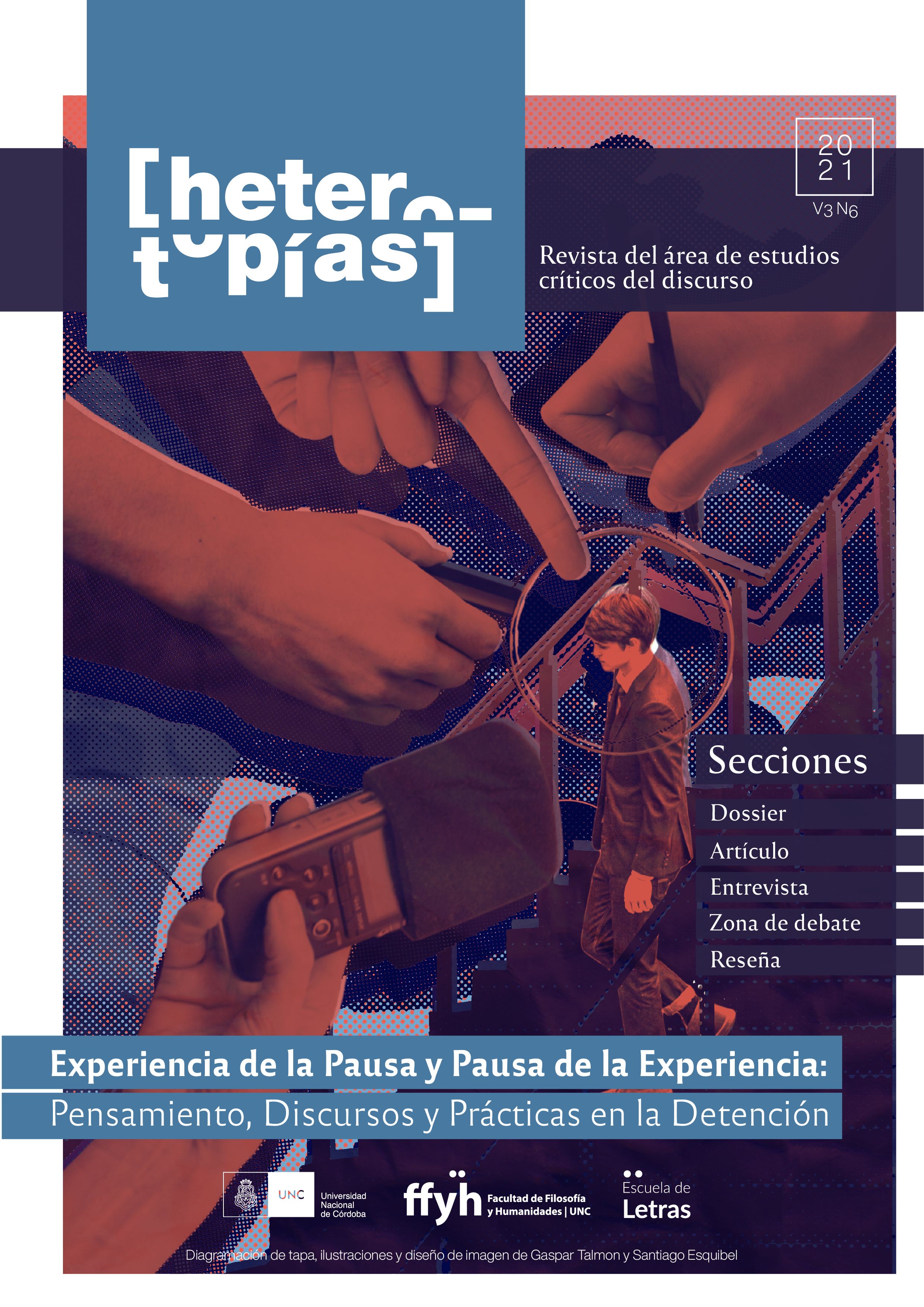The stoppage of time in fiction and psychosis: an interdisciplinary approach to the experience of the pause
Main Article Content
Abstract
The present work aims to investigate the way in which the experience of the pause is elaborated in fiction, psychiatry and psychoanalysis. In this sense, a short story and an article by Jorge Luis Borges are analyzed, where the experience of the pause of time appears as the main element. In the case of psychiatry, we analyze the contributions of the so-called phenomenological psychiatrists, who propose a study of psychoses from the point of view of subjective experience. In our case, we are interested in the subjective experience of time and its abolition or detention. Likewise, we expose how psychoanalysis approaches temporality both in Freud and in his Lacan epigone, without forgetting to mention the way in which they explain psychosis from their own theoretical models. All of this is done with the purpose of supporting a question that is of great importance to us: Is the experience of the pause outside of fiction and psychosis possible?
Downloads
Article Details

This work is licensed under a Creative Commons Attribution-NonCommercial-ShareAlike 4.0 International License.
Those authors who have publications with this journal, accept the following terms: Those authors who have publications with this journal, accept the following terms:
a. The authors will keep their copyright and guarantee to the journal the right of first publication of their work, which will be simultaneously subject to the Creative Commons Attribution - Non-Commercial - Share Alike (by-nc-sa) Attribution License; no commercial use of the original work or any derivative works is allowed, the distribution of which must be done with a license equal to the one that regulates the original work.
b. Authors may adopt other non-exclusive license agreements for the distribution of the published version of the work (e.g., deposit it in an institutional telematic archive or publish it in a monographic volume) provided that the initial publication in this journal is indicated.
c. Authors are allowed and recommended to disseminate their work through the Internet (e.g. in institutional telematic archives or on their website) before and during the submission process, which may lead to interesting exchanges and increase the number of citations of the published work. (See The effect of open access).
References
Almada, R. (2008). Fenomenología y psicopatología del tiempo vivido en Eugène Minkowski. Recuperado de www.robertoalmada.com/blog/wp-content/.../01/minkowski.pdf.
Borges, J.L. (1972). Otras Inquisiciones. En Obras Completas(pp. 663-679). Buenos Aires: Emecé.
Borges, J.L. (2015). Ficciones. Buenos Aires: Debolsillo.
Deleuze, G. (1985). El Antiedipo. Barcelona: Paidós.
Ey, H. (2008). Estudios Psiquiátricos. Buenos Aires: Polemos.
Freud, S. (2005). Puntualizaciones psicoanalíticas sobre un caso de paranoia (Dementia Paranoides) descrito autobiográficamente. En Obras Completas V. XII(pp. 1-76). Buenos Aires: Amorrortu.
Green, A. (2000). El tiempo fragmentado. Buenos Aires: Amorrortu.
Jaspers, K. (1977). Psicopatología General. Buenos Aires: Beta.
Lacan, J. (1971 [1954]). Respuesta al comentario de Jean Hypolite sobre la Verneinung de Freud. EnEscritos (pp. 366-383). Buenos Aires: Siglo XXI.
Lacan, J. (1955/1956). El Seminario, Libro 3, La Psicosis. Buenos Aires: Paidós.
Miller, J. A. (1999/2000). Los usos del Lapso. Buenos Aires: Paidós.
Milone, G. (2018). Habla de escritura. Revista pensamiento político. Recuperado dehttps://ri.conicet.gov.ar/bitstream/handle/11336/62394/CONICET_Digital_Nro.Milone.pdf?sequence=5&isAllowed=y.
Minkowski. (1973). El tiempo vivido. México: Fondo de Cultura Económica.
Schreber, D. P. (1999). Memorias de un enfermo nervioso. Buenos Aires: Perfil Libros.
Volta, L., Fulgueiras, M. y Arruti, A. (2015). La temporalidad maníaco-depresiva: del registro vivencial a la lógica del significante. V Congreso Internacional de la Facultad de Psicología[Ponencia].Universidad Nacional de la Plata. Recuperado de http://sedici.unlp.edu.ar/handle/10915/54405.
Zanchettin, J. (2017). Psicosis: Indicios clínicos de una particular temporalidad. IX Congreso Internacional de Investigación y Práctica Profesional en Psicología XXIV y Jornadas de Investigación XIII Encuentro de Investigadores en Psicología del MERCOSUR[Ponencia]. Facultad de Psicología, Universidad de Buenos Aires, Buenos Aires. Recuperado dehttps://www.aacademica.org/000-067/936.pdf.
